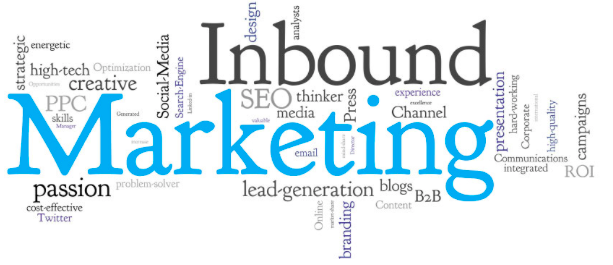Everything you need to know about the most successful marketing practice of the digital age.
In a nutshell, inbound marketing is any marketing tactic that relies on earning people’s interest rather than buying it. Inbound marketing takes your digital strategy to the next level by attracting customers through the most relevant and helpful content for your business, while contributing value to each stage during your customer’s buying journey. This methodology works perfectly for small business, and large business alike. By emphasizing content relevant to the target market, customers are able to find your business through channels such as blogs, search engines, and all types of social media platforms, attracting qualified prospects to your business and more importantly, keeps them coming back for more.
Due to the change in the customer’s buying process, marketers need to find new ways to reach potential and current buyers to drive brand awareness; which introduces the concept of lead generation. Today’s buyer can do their own research online and find a variety of resources through an array of search engines, social media platforms, and other online channels available.
But, why inbound? Inbound marketing allows us to create a specific content strategy customized around the target market and buyer personas alongside the stage of the buying cycle they are in. Providing valuable content at the right time to a specific customer secures trust within your business and ultimately ensures customer satisfaction.
What counts as Inbound marketing? Content marketing, social media marketing, and email marketing are 3 effective practices that showcase the power of inbound marketing.
- Content marketing is the strategic marketing approach of creating and distributing valuable, relevant and appropriately consistent content to attract a defined audience with the mission of driving profitable customer action.
- Social media marketing consists of using different social platforms to market your business, syndicating content, and improving a business’s visibility, increasing brand awareness, and brand loyalty.
- Email Marketing is the use of email to promote a product or service. A better definition is using email to engage specifically with your potential customers.
Popular inbound marketing platforms such as HubSpot, Pardot, Marketo, Eloqua, and Optify include software that simplify your efforts by: automating content creation, distribution, lead capture and engagement, while measuring return on investment. Each software package is tailored to different types and sizes of a business.
Inbound marketing has opened new doors, helping businesses everywhere create success stories. The concentration of this strategy is held by the belief that: “ if we, as a business, deliver consistent, relevant and valuable information to buyers and potential customers, they will reward us with their business and loyalty.” Say goodbye to outbound marketing, and welcome the new opportunities inbound marketing can create for your business.

